
Homebrewing here in the UK has been going on for hundreds if not thousands of years and over that time our knowledge of brewing has got better and better.
If you have heard that beer kits are terrible, if you have heard a friend say their dad used to make homebrew beer and it was awful, if you have heard stories about exploding bottles, then read on as you need to know a little bit more about homebrew in the 1970's.
Back in the 70's and 80's
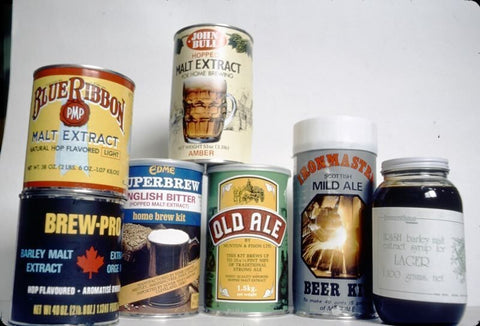
Homebrew kits were first very popular in the 70's and 80's and the only knowledge you could get was from a few books written by homebrewers that enjoyed a tipple and tried to help others start to brew their own.
Back then there was very limited information out there and you could even buy a beer kit in Boots along with your prescription. The instructions on the beer kits were very simple and without that extra knowledge the books held, the brewing process of said beer kits varied greatly from brewer to brewer.
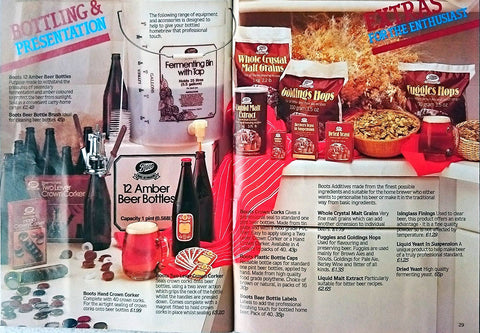
If you had a good bucket, a thermometer, a hydrometer, a good steriliser, a good syphon, good bottles, good caps and a good capper, then you could make a good beer that was as good as you would get in a pub and sometimes, even better.
It was however the dad or granddad that bought a beer kit and tried making it in a bucket he had in the shed. "It's ok son, just scrub it out with this wire brush, that will get those flakes of paint and the coal stains off." No steriliser, just some cloth over the top for protection and then syphoning it into bottles using the same tube he'd used yesterday to syphon petrol from the car into the lawnmower.
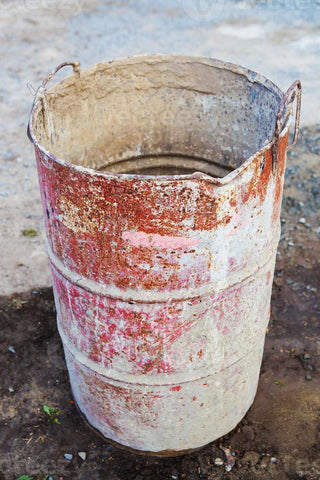
The stories the kids would tell their friends in school spread like wildfire "Ey, me and me dad are making beer at home, it'll be ready in a few days, wanna try some?". The friend would go home "Ey Dad, Billy and his dad are making beer in the shed. Can we make some? Billy said his dad got it from Boots". And so it would spread.
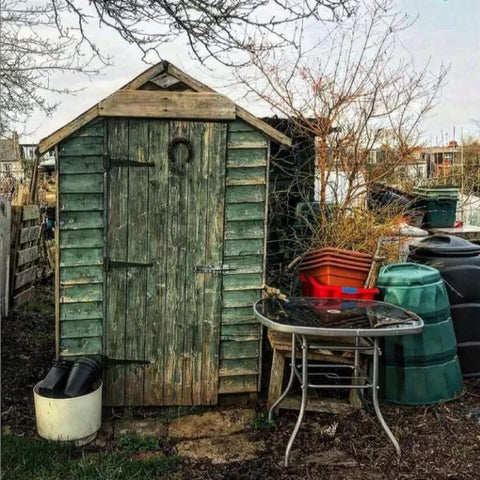
Homebrew was GREAT! Beer Kits were GREAT! It was just the people making them didn't have the equipment and knowledge. And after drinking that beer that had been made in a bucket that had held - I don't want to imagine what it had held, I remember my uncle had an allotment and in the back of the shed he had a bucket for emergencies, let's say no more.
Beer kits wouldn't have survived until today if there weren't brewers out there that could make great, tasty beer from them. People did make great beer from the kits in the 70's and 80's, we just hear the stories of the dads that didn't know how to brew.
And that's where the stories of exploding bottles comes from. It's lack of knowledge or not following the instructions. The same rules apply now as they did back in the 70's and as long as you follow them, you will not have exploding bottles - The rules for beer to avoid exploding bottles: 1 - Use the right bottles - those suitable for holding carbonated beer. 2 - Make sure the beer has finished its primary fermentation using a hydrometer. 3 - The hydrometer reads an SG of 1.012 or lower. It's that simple. I've had 1 bottle explode in the last 10 years and that was a bottle of beer bought from a shop and that was due to a flaw in the glass.
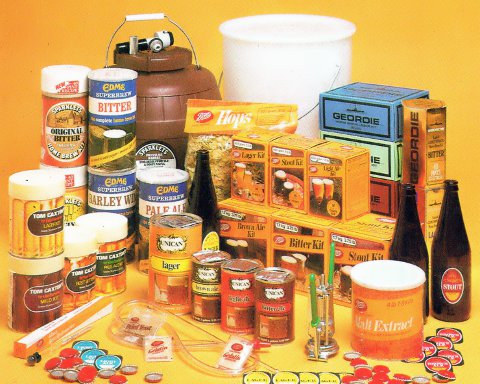
There weren't many kits available either, there were brands like Tom Caxton, Geordie, John Bull, Munton & Fision, Iron Master, some of which are still with us today.
The beer varieties available too were quite limited with the likes of Mild, Bitter, Best Bitter, Scottish Mild, Old Ale, etc. The sorts of beers you would find in a good pub where the landlord didn't water it down or pour the slops back into the barrel.
Thank goodness for CAMRA.
To make a beer kit back in 70's, the manufacturer would mash the grain, sparge, boil with hops, and then boil off the excess water until they were left with a glupe that looked like treacle. This long boil destroyed lots of the delicate flavours in the beer. When you got the beer kit home, you needed to add extra sugar and water and the yeast and then let it brew.
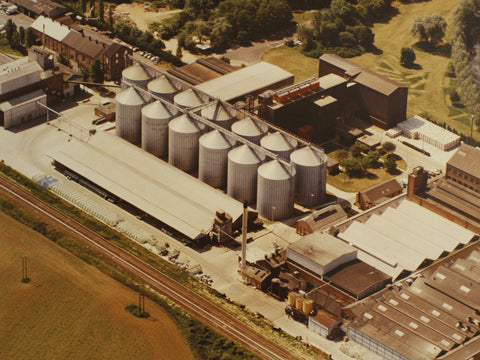
This is Muntons the biggest maker of malt extract in the UK taken in 1970.
I still see so many questions on the forums from new brewers making their first kits, asking what seems to be the simplest of questions, but now, all the information is at their fingertips.
This plethora of information means that even a rookie can now brew an amazing beer and those stories from the 70's are gradually being resigned to the history books.
Yes, there are still people that don't follow the instructions / guidance and make mistakes, hey we all make mistakes. We are dealing with a living organism and sometimes they can do unexpected things, but it's rare!
Beer Kits Today
So are beer kits any good? Do beer kits taste good? Do beer kits make good beer? Is homebrew beer drinkable? Are beer making kits worth it?
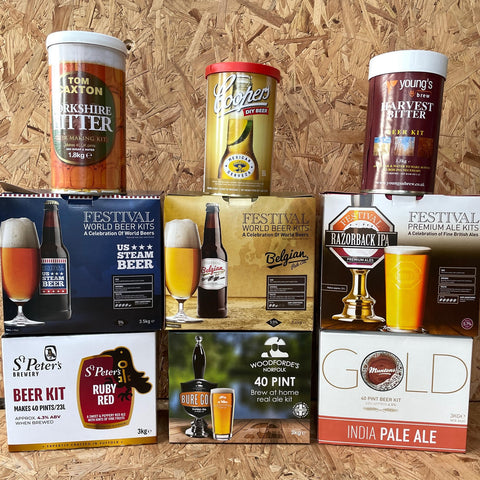
Well, before I answer those questions. let talk about what we have learned since the 1970's - regarding beer brewing that is.
For many years, breweries made the same beer, to the same recipe, with the same ingredients, with the same yeast, using the same method, brew after brew. But thanks to the beer revolution over in the USA, the styles of beers now available have grown and new ones are being dreamt every day.
The knowledge of how yeast work is now better understood. We understand they don't just eat sugar, they eat lots of compounds in the wort and change these into new compounds, improving the texture, body and flavour of the finished beer.
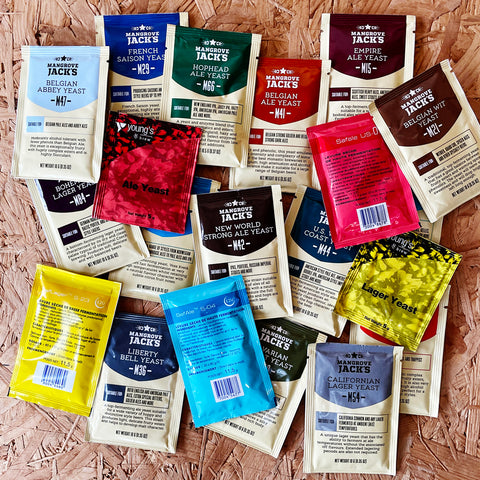
Hops have been bred to create amazing flavours. Hops are no longer just used to create bitterness, hops are now used to add flavour. There are hops out there that can make a beer taste like bubble gum, or bananas, or blackcurrant, or grapefruit, or gooseberry, and many many many more flavours and aromas and more are being bred. And we also now know that yeast eat compounds in hops and biotransform them into new compounds that smell and taste amazing.
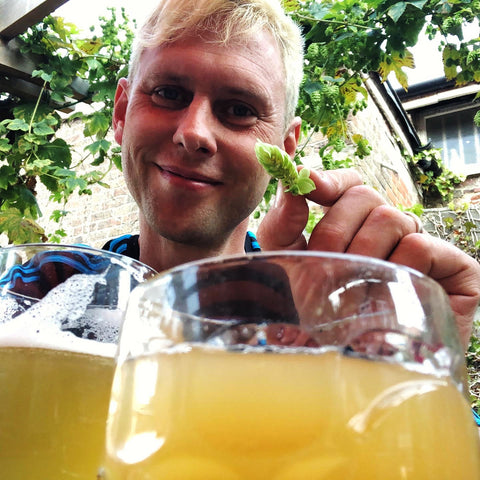
Then we have advances in canning technology. Back in the 70's a tin can (actually it was steel with a tin coating) would have a special lacquer sprayed on the inside of the tin to prevent the contents (malt extract in this instance) from coming into contact with the tin. A small dent in the tin would mean the lacquer would break and the contents would start to rust the steel and so it would take on a metallic taste. But no longer.
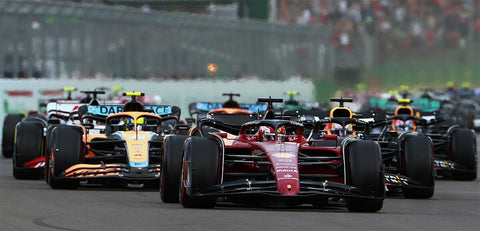
Thanks to Formula 1 racing, tin cans (lots are now aluminium, but some are still steel with a tin coating) are now coated on the inside with a thin film of plastic that moves with the can. So if a can gets dented, the plastic moves with the can and protects the contents from coming into contact with the tin.
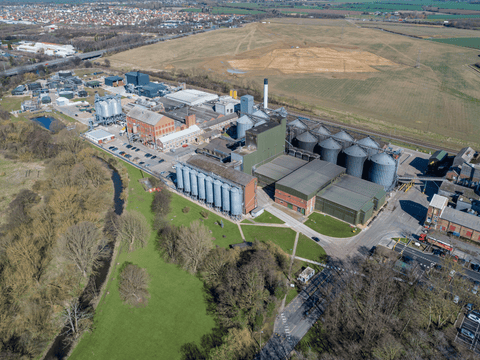
This is Muntons the biggest maker of malt extract in the UK taken in 2022.
Then we have the process the manufacturers use to make the beer kits. The malt is still mashed, it's still sparged, the hops are added and boiled, but then the wort is cooled and put into a vacuum. The vacuum is heated slightly and because water boils off at a low temperature in a vacuum, it means the wort can keep all of those amazing flavours.
So are beer kits any good?
YES!!!
Yes is the simple answer, as long as you follow the instructions, use the right equipment (which is cheap and can be used over and over again), don't rush and again, follow the instructions, you can make an amazing beer at home.
It takes about a week to brew a kit, then into bottles, then 2-4 weeks to bottle condition and then they are ready to drink.
You can buy pretty much every beer style out there in a beer kit form, so if you like a traditional mild, a best bitter, or perhaps a traditional IPA, they are all available. If you like the more modern beer styles, you can buy a beer kit that makes a west coast, a hazy IPA, a New England IPA, a milk stout, a German Weiss beer, a sour beer, a Vienna lager and lots more.
So if you were wanting to know if beer kits are worth it, YES! Yes they are.
